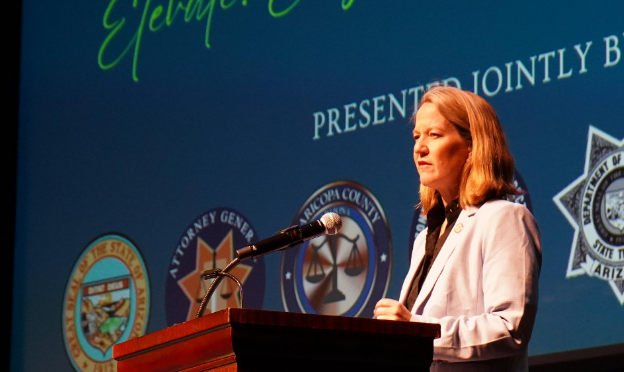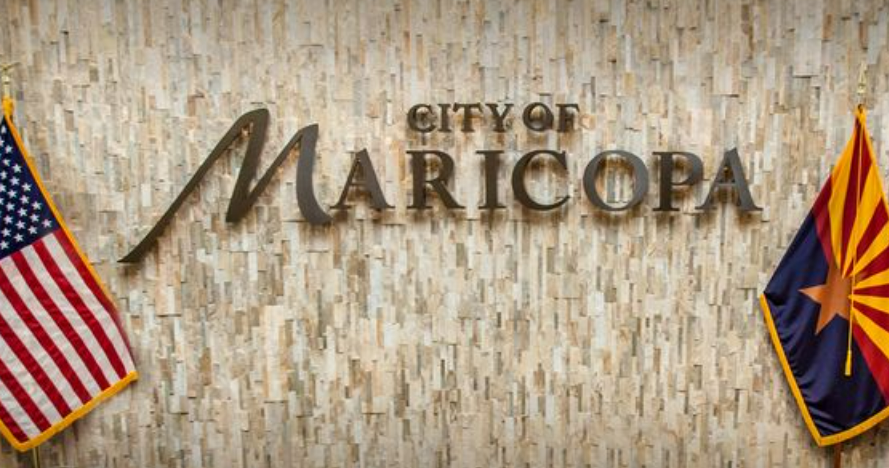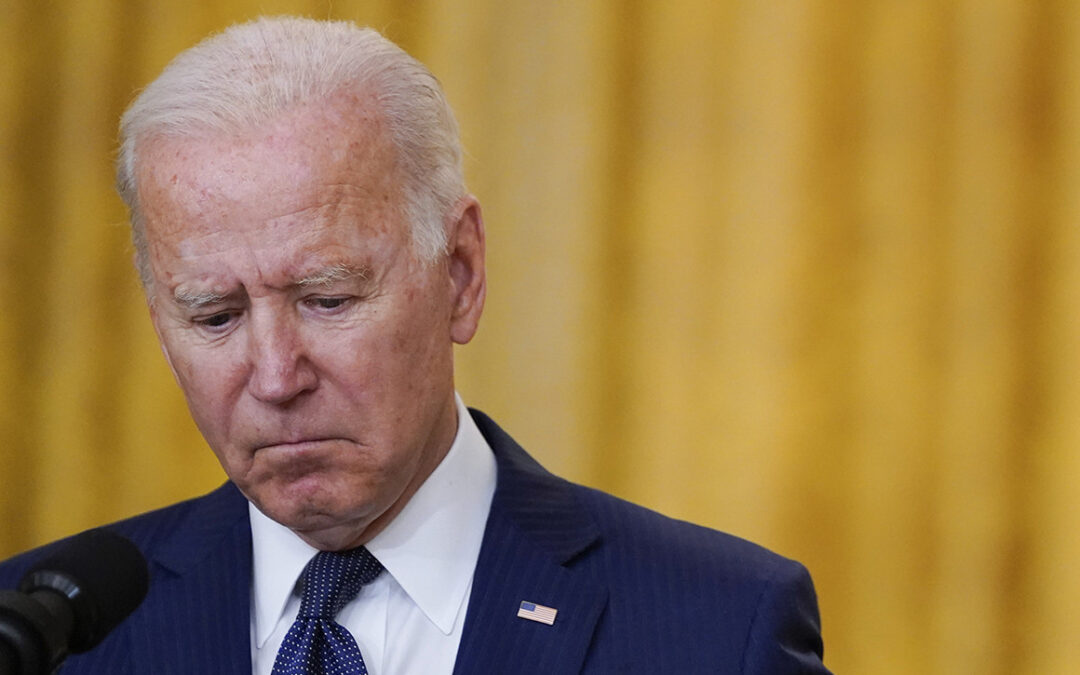
by Elizabeth Troutman | May 19, 2024 | News
By Elizabeth Troutman |
Amazon issued a statement blasting the Democratic Arizona attorney general for a “fundamental misunderstanding and mischaracterization of how Amazon’s businesses work.”
Under Arizona AG Kris Mayes’ leadership, the Grand Canyon state sued Amazon for “unfair and deceptive business practices under the Arizona Consumer Fraud Act and the Arizona Uniform State Antitrust Act.”
“Amazon’s anti-competitive and monopolistic practices have artificially inflated prices for Arizona consumers and harmed smaller third-party retailers that rely on its platform,” Mayes wrote.
Arizona filed two lawsuits, the first one focusing on the cancellation process for Amazon Prime, and the second targeting an Amazon algorithm that “determines which offer for a given product is made available via the ‘Buy Now’ or ‘Add to Cart’ buttons.”
“The lawsuit claims the Buy Box algorithm is actually biased toward offers that maximize Amazon’s profits, often favoring its own products or those of Fulfillment by Amazon (FBA) sellers over better non-FBA options,” according to a statement from the Attorney General’s office.
The company is “surprised and disappointed” by the cases, a spokesperson for Amazon said, accusing the state’s AG of initiating the lawsuits “without reviewing a single document from Amazon.”
“Prime’s sign-up and cancellation processes are clear and simple by design, meeting a high bar for customer satisfaction well above legal requirements,” the statement says. “Customers sign up for Prime because it’s an incredible service and a great value, and they can cancel their Prime membership with a few clicks from the home page.”
“These suits would force Amazon to engage in practices that actually harm consumers and the many businesses that sell in our store—such as having to feature higher prices,” the Amazon statement continues.
Elizabeth Troutman is a reporter for AZ Free News. You can send her news tips using this link.

by Elizabeth Troutman | May 19, 2024 | News
By Elizabeth Troutman |
The city of Maricopa appointed a new city manager with an annual salary of $242,000 and a $650,000 house included in the package.
Ben Bitter’s package also includes a $400 monthly stipend for personal vehicle use and a $100 monthly cell phone allowance. He is now the city’s highest paid employee ever.
Bitter will start July 1.
On April 16, the city council approved the purchase of a house for Bitter valued up to $650,000, which he will repay at a half-percent interest rate over 30 years, significantly below current market rates.
Bitter is receiving an $83,700 raise over his current salary and $20,000 more than outgoing City Manager Rick Horst’s pay.
Some residents are upset about the amount of taxpayer dollars dealt to Bitter.
Bitter’s credentials include serving as the city’s capital improvement plan and engineering director in 2021. Since 2022, he has served as deputy city manager and chief product officer.
But his background is riddled with controversy. During his time as city manager in Ashland, Kentucky, the City Commission voted 3-2 to fire him, marking the first such dismissal in decades.
The commissioners accused him of several policy violations, including issuing a $7,000 check as advanced vacation pay to a city employee against city policy and failing to investigate over $200,000 missing from city expenditures on tires.
Bitter said he was “humbled” by his appointment.
“I am deeply humbled by the trust and faith that the City Council has placed in me to fill this position,” Bitter said in a statement. “Following on the heels of such a great leader and mentor is a daunting task, one which I do not take lightly.”
Elizabeth Troutman is a reporter for AZ Free News. You can send her news tips using this link.

by Daniel Stefanski | May 18, 2024 | News
By Daniel Stefanski |
A Republican law to protect missing children in Arizona has been signed into law.
This week, State Representative Barbara Parker championed the success of her bill HB 2479, which will “provide for the establishment of a Missing, Abducted and Runaway Children Unit within the Arizona Department of Child Safety (DCS) if DCS fails to comply with statute; [and] revises various other requirements related to the recovery efforts for a child who is missing, abducted or runaway (disappeared)” – according to the overview provided by the Arizona House of Representatives.
Governor Katie Hobbs signed the bill into law on April 10.
In a statement to accompany her announcement about the bill signing, Parker said, “I couldn’t be prouder that HB 2479 has been signed into law. When I came to the legislature, I didn’t have any idea I would focus on this issue. Yet, two young women who went missing were eventually found dead in my district leaving members of our society shell-shocked and necessitating stronger interventions immediately. These tragic incidents make me determined not to forget or abandon even ONE child while serving in office since I have seen their heart wrenching consequences at close range.”
The Republican State Representative added, “The new statute will promote children’s welfare by holding its child safety systems accountable and significantly enhance our efforts at avoiding such misfortunes as well as assisting those affected families. I’m so grateful to my colleagues, Senator Farnsworth, and the foster care community who were involved in perfecting the legislation along the way. Thank you!”
Parker noted that her newly enacted bill “builds upon another law that she wrote last year, HB 2651, aimed at changing DCS’ reporting obligations when children go missing or are abducted or run away.”
Back in February, the bill passed the Arizona House with a bipartisan vote of 37-20 (with two members not voting and one seat vacant). After it was transferred to the state Senate, it was amended and passed with a 27-0 result (with three members not voting). The state House then concurred with the Senate’s changes with an overwhelming 46-12 tally (with two members not voting).
On the Arizona Legislature’s Request to Speak system, representatives from the EPIC Group and Arizona National Organization for Women signed in to support the proposal, while representatives from the Arizona Department of Child Safety and Arizona Association of Chiefs of Police indicated their neutral standing on the bill.
HB 2479 will go into effect 90 days after the conclusion of the 2024 Arizona Legislative Session.
Daniel Stefanski is a reporter for AZ Free News. You can send him news tips using this link.

by Daniel Stefanski | May 18, 2024 | News
By Daniel Stefanski |
Members of Arizona’s Republican legislative leadership are again taking action against harmful energy policies for their state.
Earlier this week, Arizona Senate President Warren Petersen and House Speaker Ben Toma sued the Environmental Protection Agency (EPA) over select regulations targeting gas-powered vehicles. The two legislative leaders also signed onto another lawsuit, which was led by a coalition of state attorneys general from across the nation, that challenged a California rule that would also have adverse effects in Arizona.
Joining Petersen and Toma on the legal filings in federal court against the EPA was the Arizona Trucking Association.
“These rules exceed the EPA’s statutory authority, are arbitrary, capricious, and an abuse of discretion,” said Senate President Warren Petersen. “In the absence of our Attorney General holding the Biden Administration accountable, the Legislature will gladly protect our citizens from this egregious abuse of power.”
In an exclusive comment to AZ Free News, Speaker Ben Toma said, “This latest California regulation attempts to override federal law, threatens to mandate the use of battery-electric vehicles, and targets owners and operators of trucking fleets. Arizona is among the top states that Californians have fled to in recent years. I joined this lawsuit to protect Arizona’s growing economy, business-friendly policies, and interstate commerce that produces fuel tax revenues for the state.”
“The EPA’s tailpipe emissions rules prioritize politics over science, posing a greater threat to public health by inflating the cost of essential and everyday goods,” said Tony Bradley, President & CEO of the Arizona Trucking Association. “Despite the trucking industry’s remarkable progress—already reducing 98.5% of emissions—we’re dedicated to further advancements through innovation and investment. Yet, the EPA’s impractical mandates, targeting a mere 1.5% of remaining emissions, burden us with unrealistic expectations and exorbitant costs. We proudly join the Arizona Legislature in challenging these detrimental regulations.”
One of the lawsuits asked the U.S. Court of Appeals for the District of Columbia Circuit to “declare [the] EPA’s final action (Greenhouse Gas Emissions Standards for Heavy-Duty Vehicles – Phase 3) unlawful and vacate it.” The other took legal aim at the EPA’s final rule for Multi-Pollutant Emissions Standards for Model Years 2027 and Later Light-Duty and Medium-Duty Vehicles.
According to Arizona Senate Republicans, these regulations from the EPA “require by 2032 nearly 70% of all new vehicles and 25% of all new semitrucks or similar heavy-duty vehicles sold in the United States to be electric, guaranteeing to raise the costs of everything Arizonans purchase, and without adequate charging infrastructure in place or the necessary power grid capacity.”
The California lawsuit was led by the State of Nebraska and challenged California’s “ban [on] internal-combustion engines in medium- and heavy-duty vehicles.” Arizona Senate Republicans pointed out that “the rule applies to any fleets headquartered in Arizona, if they operate within California, which will create dire impacts to the supply chain and dramatically raise costs for Arizona trucking companies that will inevitably be passed onto their customers.”
“The climate change agenda from Democrats imposes expensive and unattainable goals on the automotive and trucking industries, which will undoubtedly lead to soaring consumer prices,” said Senator Frank Carroll, vice chairman of the Senate Committee on Transportation, Technology & Missing Children. “We don’t have the infrastructure to power these vehicles, and the average working-class citizen or trucking business can’t afford to purchase them.”
Daniel Stefanski is a reporter for AZ Free News. You can send him news tips using this link.

by Daniel Stefanski | May 17, 2024 | News
By Daniel Stefanski |
Arizona officials and agencies recognized law enforcement during the annual Police Week.
The Arizona Senate Republicans Caucus “X” account honored these first responders, writing, “This week we honor our law enforcement who put their lives on the line daily, as well as the fallen officers who paid the ultimate price to protect us. Our prayers are with the police officers and their families each and every day. THANK YOU!”
Senator Janae Shamp added, “God bless all the men and women in blue! We never miss an opportunity to let them know how appreciated they are by the Shamp family! #BacktheBlue”
Peoria Mayor Jason Beck posted, “During National Police Week, we are honoring our brave men and women in blue. On behalf of Peoria, we express our deepest gratitude for their constant dedication to keeping our communities safe.”
The Arizona Department of Education “X” account stated, “Superintendent Horne is thankful for Arizona’s Law Enforcement community. These heroes protect students, families, and our way of life.”
The Arizona Troopers Association shared a picture of four of its members in Washington, D.C., outside of the White House for police week.
The Maricopa County Attorney’s Office posted a video from County Attorney Rachel Mitchell, writing, “This National Police Week, we honor the dedication and sacrifice of our law enforcement community and their families. We are thankful for the brave men and women in Maricopa County and every corner of our nation who put everything on the line to keep our communities safe!”
The City of Apache Junction also stated, “We pay tribute to those who have made the ultimate sacrifice in the line of duty, never forgetting their courage and commitment.”
Daniel Stefanski is a reporter for AZ Free News. You can send him news tips using this link.

by Elizabeth Troutman | May 17, 2024 | News
By Elizabeth Troutman |
Rep. Eli Crane, R-Ariz., accused President Joe Biden of “treasonous” conduct in mishandling the border at a Judiciary Committee hearing on May 10.
Crane joined House Judiciary Committee Chairman Jim Jordan, R-Ohio, and members of the committee in Sahuarita, Arizona for a field hearing titled “The Biden Border Crisis: Arizona Perspectives.”
The hearing examined the effects of the current southwest border crisis on Arizona’s residents and communities.
Crane said the president has “betrayed” the country. He read a definition of treason from the dictionary and said he thinks the president’s behavior qualifies.
“I think it’s treasonous, I absolutely do,” Crane said. “You guys feel betrayed? I know I do.”
The committee members heard from local residents, including a former Border Patrol sector chief, a former sheriff’s deputy, a fifth-generation rancher whose property and leases cover five miles of the border, and a woman who lost two children to fentanyl overdoses.
The witnesses said the border is the worst they’ve seen.
“It’s purposeful, and the purpose is to change the demographics of this country,” said Jim Chilton, the rancher. “It’s politically thought by the administration, Mr. Biden, that these people will vote for Democrats in the future.”
Chris T. Clem, the former high-ranking Border Patrol chief who served from President Clinton to President Biden and is now retired, said the Biden administration aims “to swing power on their behalf.”
Jordan agreed.
“It’s sad because you don’t want to think that about the commander-in-chief,” the Ohio Republican said. “But it’s tough to come up with any other conclusion.”
Elizabeth Troutman is a reporter for AZ Free News. You can send her news tips using this link.






